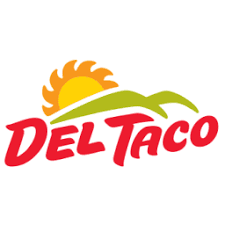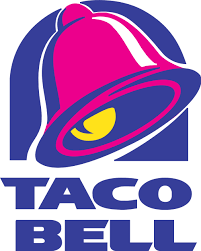Fast Food Chains Face-Off: Del Taco vs. Taco Bell
Taco Bell and Del Taco dominate Mexican-American fast food, each offering distinct flavors, franchise models, and growth strategies. Dive into our side-by-side analysis to explore investment costs, franchise support, and what makes each brand unique!

Table of Contents:
Introduction
The fast food chains industry, a dynamic and ever-evolving sector, has witnessed a surge in the popularity of Mexican-American cuisine, captivating the taste buds of consumers worldwide. Within this bustling arena, two major players stand out: Taco Bell and Del Taco. Both chains have carved out significant niches for themselves, offering distinctive flavors and dining experiences that resonate with a diverse clientele. In this article, we delve deep into a comparative analysis of these two fast-food giants, focusing on their franchise models, growth strategies, and operational dynamics.
What is Taco Bell?
Founded in the early 1960s, Taco Bell has emerged as a dominant force in the fast food industry, especially in the realm of Mexican-inspired cuisine. Renowned for its innovative menu that includes items like the famous Chalupa and a variety of signature sauces, Taco Bell has not only captivated its audience with its food but also with its vibrant, youth-oriented branding. As of 2023, the chain boasts over 8,320 units, reflecting a significant growth of 12.4% over three years. This expansion is a testament to Taco Bell’s commitment to evolving its offerings and staying relevant in the fast-paced food industry.
What is Del Taco?
Del Taco, established in the 1960s, stands as the second-largest Mexican/American fast food chain in the United States. With a history nearly as rich as Taco Bell’s, Del Taco has made its mark by offering a diverse menu that blends traditional Mexican flavors with classic American dishes. This unique fusion has allowed Del Taco to cultivate a loyal customer base that appreciates its distinctive culinary approach. Over the years, Del Taco has expanded its footprint significantly, now operating over 400 franchise restaurants across the country.
Taco Bell’s Franchise Model
Taco Bell operates a robust franchise model, a key factor in its widespread presence and success. Prospective franchisees looking to invest in Taco Bell need to meet certain financial requirements, including a franchise fee of up to $20,000 and an initial investment ranging from $525,100 to $2,622,400. Additionally, a net worth requirement of $1,500,000 and a liquid cash requirement of $750,000 are stipulated. Taco Bell’s support system for its franchisees is comprehensive, offering both on-the-job and classroom training, as well as ongoing training and marketing support. With aspirations of achieving $20 billion in sales and expanding to 10,000 global locations, Taco Bell’s franchisee-inspired portfolio is geared towards substantial growth and digital sales.
Del Taco’s Franchise Model
Del Taco presents a compelling opportunity for franchisees, with a model that emphasizes both growth and support. To join the Del Taco franchise family, a potential franchisee needs to have liquid capital of at least $500,000. The total initial investment for opening a Del Taco franchise ranges from $812,700 to $2,467,500, inclusive of a $35,000 franchise fee. This investment covers various aspects such as franchise fees, training costs, inventory, and build-out expenses. Del Taco prioritizes robust support for its franchisees, ensuring they are well-equipped to manage and grow their businesses effectively.
Comparison of Franchise Models
Del Taco vs. Taco Bell: Investment Requirements
When comparing investment requirements, Taco Bell requires a higher financial commitment from franchisees, with initial investments ranging from $525,100 to $2,622,400, and a higher net-worth and liquid cash requirement. In contrast, Del Taco’s initial investment ranges from $812,700 to $2,467,500, with a lower liquid capital requirement of $500,000.
Franchise Costs
Franchise costs for both chains include initial franchise fees, with Taco Bell charging up to $20,000 and Del Taco charging $35,000. Ongoing costs such as royalty fees also differ, with Taco Bell charging 5.5% of gross sales plus a 4.25% marketing fee, whereas Del Taco charges a 5.0% royalty fee.
Franchise Pros and Cons
The Taco Bell franchise offers extensive support and training, a robust marketing strategy, and a strong brand presence. However, it requires a significant financial investment and adherence to stringent operational guidelines. Del Taco, while smaller in scale, offers a more flexible franchise model with lower initial investment requirements, but may not have the same level of brand recognition as Taco Bell.

Utilizing Vetted Biz’s Franchise Comparison Tool
For a more detailed comparison, the Vetted Biz Franchise Comparison Tool is an invaluable resource. This tool helps in contrasting the specifics of each franchise, allowing prospective franchisees to evaluate factors such as investment costs, support structures, and growth potential. The tool is especially useful for gaining a comprehensive understanding of each brand’s franchise model, facilitating a more informed decision-making process. Access the comparison tool at Vetted Biz Franchise Comparison.
Failure Rate and Franchise Agreement Duration
The failure rate of franchises is a critical factor for potential investors. While specific data on the failure rates of Taco Bell and Del Taco franchises is not readily available, it is essential to consider that franchise success is influenced by location, market dynamics, and operational efficiency. The duration of franchise agreements also plays a role, typically lasting several years, with specific terms varying based on the franchisor’s policies and the agreement with the franchisee.
Conclusion
In the competitive landscape of Mexican-American fast food chains, Taco Bell and Del Taco present two distinct franchising opportunities, each with its own set of advantages and challenges. Taco Bell, with its vast global presence and ambitious growth plans, offers a well-established brand with a proven track record. However, it demands a substantial financial investment and strict adherence to its operational model. Del Taco, while requiring a lower initial investment, provides franchisees with more flexibility, although it may not offer the same level of brand recognition as its larger counterpart.
Ultimately, the choice between Del Taco and Taco Bell as a franchising opportunity depends on the individual goals, financial capacity, and business aspirations of the prospective franchisee. Both brands have demonstrated resilience and adaptability in the dynamic fast-food industry, each carving out a unique path to success.
As the fast food industry continues to evolve, both Taco Bell and Del Taco are poised to remain significant players, adapting to consumer trends and market changes. For aspiring franchisees, understanding the nuances of each brand’s franchise model is crucial in making an informed decision that aligns with their business objectives and vision.


